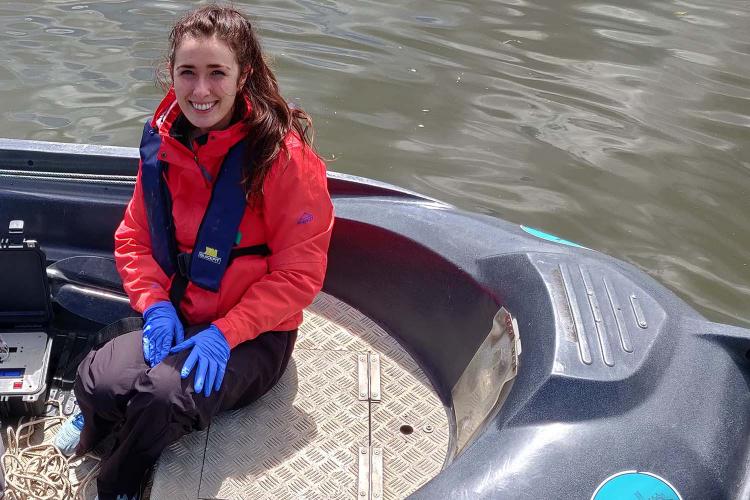When Dublin City University (DCU) Water Institute was developing its new mobile lab technology to help predict future changes in water quality, it turned to precision drive and motor specialist, maxon for help.
 Predicting Future Changes in Water Quality
Predicting Future Changes in Water Quality

Article from | maxon group
As the impact of climate change and land use continue to harm aquatic environments, it is becoming increasingly important to measure and monitor changes in water quality. When Dublin City University (DCU) Water Institute was developing its new mobile lab technology to help predict future changes in water quality, it turned to precision drive and motor specialist, maxon for help.
The project, led by Professor Fiona Regan, Joyce O’Grady, a PhD student at DCU, and Dr. Nigel Kent, then the director of the centre of research and enterprise in engineering (engCORE) at the Institute of Technology Carlow. The project was sponsored by the Irish Marine Institute and involves studying freshwater sites where the quality is good and monitoring any changes that could impact the ecosystem.
The team developed a sensor to detect low phosphate levels in selected catchments for real-time monitoring. Phosphates are a measure of nutrient pollution and control the pace at which algae and aquatic plants are produced. To mix and measure the water sample and the reagent fluid, O’Grady and Kent developed a centrifugal microfluidic disk that acts like a mobile lab, with six tests per disk. The ability to use a mobile lab reduces the risk of contamination, delivers a faster turnaround for results and produces real-time data.
When they needed support developing the disk, Kent contacted Martin Leahy, maxon’s sales engineer in Ireland, who specified a DCX 22 mm DC motor and the robust ENX 10 EASY 3-channel encoder for the necessary high precision and speed control. Also, modifications were made to the shaft length since a longer shaft was required with a flat edge to mount the disk.
It was critical that the motor could spin above 5,000 to 6,000 rpm to drive fluids towards the outside of the disk for at least 60 seconds and, at the measurement stage, index the disk through 60 degree increments with sub 1 degree precision. The DC motor and encoder form part of a more extensive integrated firmware system. The system needed to be fully integrated with minimal sample handling to lessen contamination.

“I assumed pricing would be a barrier, but the YEP made it a no-brainer as maxon products would have always been on my wish list. The level of customisation available, especially at such low volumes, was impressive, and Martin’s advice has been invaluable to the project,” added Kent. “I had previously only considered maxon products in final applications but not for prototyping.”
The sensor is now fully validated, and studies are continuing in other areas with the full device. One study has been completed on the River Liffey, and another is due in a lower catchment area. The system will be replicated for four more studies to complete the project in its fifth year.
“Industry 4.0 is finding its way into many different industries. The kind of system that Joyce is developing will be prevalent; autonomous sensors that you can leave out and get real-time feedback on the state of rivers or lakes will play a huge role in areas like Agriculture 4.0. For example, the interconnected nature of technology, using drones for smarter spraying, reduces water runoff, which helps prevent water pollution and protects our drinking water resources. This will be the industry focus over the next decade,” concluded Kent, currently assistant professor in the school of mechanical and manufacturing engineering in DCU.
Dublin City University (DCU) is part of Beyond 2020, a research cluster consisting of six Irish and UK institutes examining new technologies for monitoring environmental waters to understand the role of aquatic ecosystems in a changing global environment.
The content & opinions in this article are the author’s and do not necessarily represent the views of AgriTechTomorrow
Comments (0)
This post does not have any comments. Be the first to leave a comment below.
Featured Product

